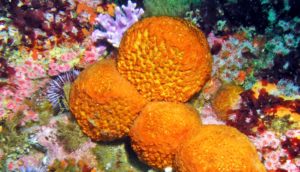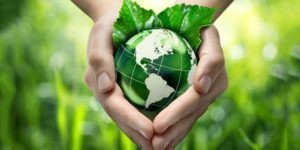A group of Spanish researchers, from the Center for Advanced Studies in Blanes (CEAB-CSIC), found that sea sponges retain about 48 million tons of silicon per year in the oceans, which contributes to mitigating the greenhouse effect and global warming in the atmosphere.
In a statement, the CSIC explained that the results of the study, which was led by researcher Manuel Maldonado, show that most of the silicon in the oceans comes from sea sponges, and not from diatoms, a microalga that constitutes one of the most common types of phytoplankton, as previously thought.
The silicon cycle is one of the most important in the entire marine ecosystem, since this chemical element, which is dissolved in the oceans, is essential for the growth of diatoms, which absorb large amounts of CO2 with their photosynthesis that help to reduce the greenhouse effect.
As in the rest of the cycles, that of silicon must be in balance. That is, the annual amount of dissolved silicon that enters the oceans should be equal to that which comes out. Previous studies, which only took into account the skeletons of diatoms, warned of the need to find another source of silicon in the sea before the possibility that the balance of their cycle was broken by the increased melting of glaciers and poles.
Now, Spanish researchers from CEAB-CSIC have revealed that the amount of silicon retained in the ocean is 28% higher than previously investigated, thanks to the role played by sea sponge skeletons in the seabed.
The skeletons of the sponges are, for unknown reasons, much more resistant to dissolution than those of the diatoms, a property that caused the siliceous content of these had not been detected previously. This discovery supports that the marine silicon cycle is in balance and introduces the idea for future research that the biochemical cycles in the ocean are not as clear as initially thought.
The CEAB-CSIC research, which examined more than 160,000 skeletons of siliceous organisms in marine sediments for 5 years, was supported by grants from the Government of Spain and the Horizon 2020 project of the European Union (EU).


